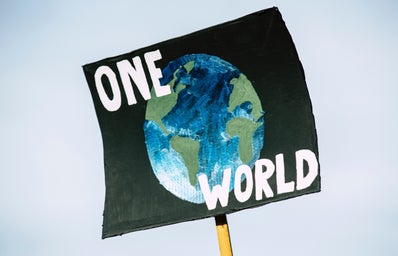Background
Water scarcity is a global pandemic that is growing as the years go by. Earth is 71% covered by water, yet less than 3% of that is fresh water. Even worse, two-thirds of the freshwater is tucked away in our glaciers. As a result, approximately 1.1 billion people lack proper access to drinkable water. In the United States, 2.2 million people don’t have access to running water. Many have to rely on bottled water, which typically costs $1,350 for a year’s supply. If a citizen can’t afford potable running water, they most likely can’t afford bottled water. In addition to water scarcity, there is also a pollution problem in the U.S. when it comes to bottled water. Americans throw away about 35 billion bottles of water a year, and only 12% of that gets properly recycled. The remaining 88% ends up in a landfill or incinerated. According to the Water Project, water bottles take over 1,000 years to disintegrate, or if incinerated, give off toxic fumes. States must enforce proactive policies to ensure sustainable water bottle management. Water recycling is a critical step towards mitigating water scarcity and fostering responsible water bottle use.
The availability and accessibility of water have definitely increased since the Safe Water Drinking Act of 1974. However, water scarcity is still a pandemic that needs to be acknowledged. Not only is the water shortage affecting us, but our food as well. 37% of our total water use is used by farmers for irrigation. The recent droughts brought on by climate change are also hurting the entire country. Between decreased precipitation and increased population, this pandemic needs more attention.
These policy options advocate for public universities to be mandated to recycle their student’s water. Narrowing down the issue, universities tend to use anywhere from 600 million to over one billion gallons of water in one year. With these policies, we aim to get those numbers down to a maximum of 300 million gallons by 2025.
The problem originates with inadequate tap water on college campuses. For example, George Mason University found that students consumed about 5,000 gallons of water per week. The university found that they were spending about $64,000 a week only on bottled water. According to Live Science, “An estimated total of the equivalent of 32 million to 54 million barrels of oil was required to generate the energy to produce the amount of bottled water consumed in the United States in 2007.” Bottled water in the United States is a silent killer. Everyone thinks that their few bottles a week won’t hurt, but unfortunately, they add up over time. After these students consume bottled water, they not only throw bottles away with some water still in them, but usually the plastic isn’t being recycled either. By addressing this issue, we would be able to decrease both water waste and inadequate recycling of plastic.
Overall, the water waste problem shows that policies need to be placed in order to combat the issue of water accessibility our society faces. With our growing population drinking a finite amount of freshwater, something must be done.
Solutions
- Water Recycling Infrastructure Policy
- Requirement for Water Recycling Systems: Mandate the installation of water recycling systems in new buildings and major renovations on campus.
- Upgrade Existing Systems: Develop a phased plan to upgrade existing water treatment systems to include water recycling components.
- Water Recycling Research and Innovation:
- Research Grants: Establish grants or funding programs to support research on water recycling technologies, encouraging faculty and students to contribute to innovative solutions.
- Partnerships with Industry: Foster partnerships with water technology companies and research institutions to stay at the forefront of water recycling advancements.
Conclusion
Water waste is an overlooked issue in this day and age, especially in the average college. In order to solve a lifelong crisis, EVERYONE needs to try and do what’s best for the planet. Who knows, maybe instead of redistributing all of this wasted water back into America, it could be sent to places like Africa (which only has 9% of the water we do.) The moral of the story is… it is time for a change.

